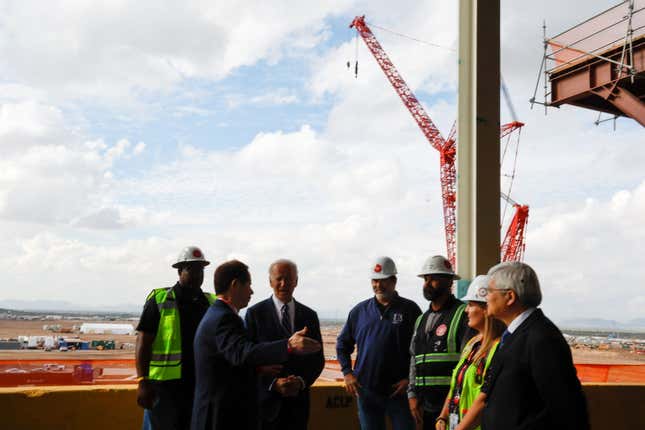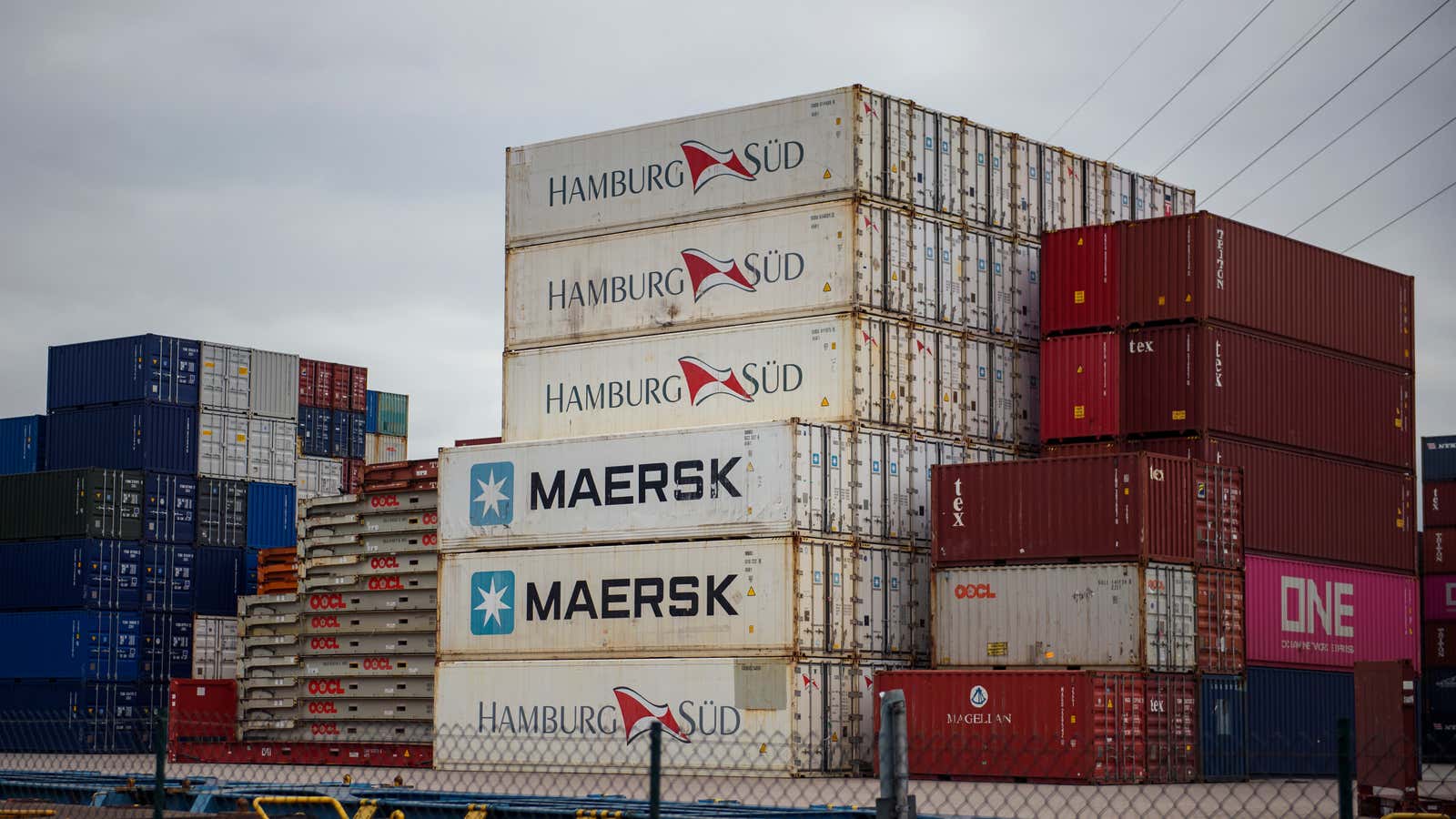In January, Maersk and Mediterranean Shipping Co., the world’s two largest shipping lines, announced that their alliance would end in 2025.
Dubbed 2M, Maersk’s and MSC’s partnership allowed the two companies to share vessels, just as airlines strike code-sharing deals. Together, they control roughly one-third of global shipping capacity, although the ships that each company contributes to the alliance jointly makes up only one-tenth of worldwide capacity.
The breakup is about more than two shipping giants going their separate ways. It represent different bets on the shape of global trade in the decades to come—and on the forces of economic decoupling that will reroute the international flows of goods.
The other two global shipping alliances—Ocean Alliance and THE Alliance—could get reshuffled too, as 2M’s breakup unfolds. One industry expert foresees a domino effect. A container shipping price war could lurk on the horizon. And as the sector gets shaken up, shipping companies may have to rethink how they invest in fleet capacity and logistics infrastructure.
Beneath it all are ongoing economic realignments and the competition between two great powers. The 2M breakup “is big news, huge news” Antonella Teodoro, an economist at the UK-based transport economics consultancy MDS Transmodal, said of the 2M disbandment. “This goes beyond shipping.
Maersk and MSC’s divergent playbooks
In their joint announcement of the 2M breakup, Maersk and MSC cited the need for both companies to “pursue their individual strategies.” In other words, they have opposing priorities that can’t be reconciled, at least for now.
Maersk is intent on being not just a shipping company but a one-stop shop for logistics, including air transport, freight forwarding, trucking, and last-mile delivery. MSC is doubling down on aggressively expanding its fleet. Or as Teodoro put it: Maersk “doesn’t mind losing market share” in shipping, whereas that’s a key metric for MSC.
Maersk CEO Søren Skou said as much during his company’s third-quarter earnings call in November, noting that “our strategy is not to gain market share in Ocean. It is to gain share in our customers’ wallet of logistics spend.”
How reshoring and friendshoring will affect global shipping
In part, the companies’ diverging strategies reflect differing prognoses on how the trend of moving manufacturing away from China and bringing factories back home (“reshoring”) or to allies (“friendshoring”) will affect shipping and global trade flows.

“In the long term, reshoring is definitely not good for shipping,” said Cichen Shen, the Asia-Pacific editor for the shipping journal Lloyd’s List. “If you have your factory back home, you don’t need ships to move your cargo. Railways will be used more often,” as would airplanes.
That would call for more integrated logistics capabilities—what Maersk is aiming for.
Yet as countries take their first steps towards friendshoring and reshoring, the reorientation of trade flows is also creating new opportunities for shipping lines because it’s “creating extra loads into the system,” said Shen.
For example, where all the manufacturing of a product was previously done in China, certain midstream processing and assembly steps may now be completed in Vietnam or South Korea, with more transhipment of intermediate products needed in and out of major Chinese ports. MSC could refine its shipping capabilities to meet this need, as could Maersk with its varying modes of transport.
Or perhaps reshoring and friendshoring will end up being bad business, as some economists argue, and global supply chains will remain largely anchored around China’s industrial base. MSC’s big bet on shipping would be well-placed to capitalize on that outcome.
What the 2M breakup means for China
Then there’s the question of China.
If the US and its allies are successful in their reshoring efforts, it would have “an immediate impact on how much cargo moves out of China, and how much control China has over it,” said Susan K. Ross, a partner at the Los Angeles-based law firm Mitchell Silberberg & Knupp.
On a strategic level, China would want to maximize its influence over global trade as much as possible. One way to do that is to increase the dominance of its state-owned shipping giant Cosco, currently the world’s fourth-largest carrier by capacity.
“When Cosco looks at [2M’s] decoupling, it’s going to think about how it wants to be in the future,” Shen, the Lloyd’s List editor, said. “It’s whether you want to become Maersk, or whether you want to be MSC.”
Or perhaps Cosco will be both. It could pursue more horizontal integration by acquiring more shipping lines, while also becoming more vertically integrated by acquiring ports—as it has done worldwide, including most recently in Germany—as well as partnering with domestic carmakers and port operators.
What’s almost certain is that any reconfiguration of shipping alliances in the aftermath of the 2M breakup will bump up against a complex tangle of geopolitics, said Ross. Amid all this flux, China could spot an opportunity for well-timed maneuvers to better bend the shipping industry to its ambitions. Those ambitions include fashioning levers of control in strategic areas such as global trade, to better compete against other countries like the US. Beijing could, for instance, highly regulate access to its ports and markets, to block any shipping tie-ups that it views as detrimental to its interests.
“This now becomes part of a much larger dialogue: What is the role of the China in the world, what is the role of the US in the world, what is the direct competition between them—and the answer is a lot,” Ross said.
